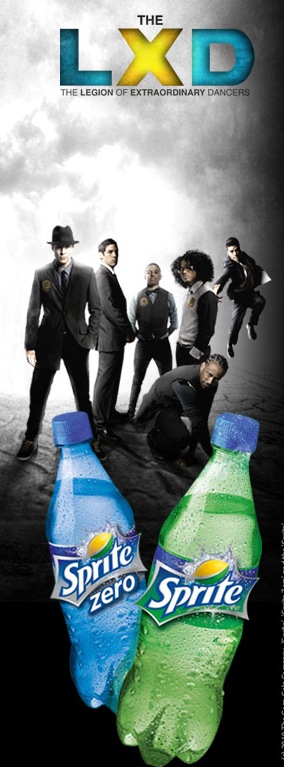[Editor’s Note: This is the second part of a multi-part series on international distribution and financing of online video from Jeremiah McMillan of Global Content Group. We’ll be releasing one part of the series each week. Stay tuned or subscribe to read the next installment. Click here for the introduction to the series.]
In our ongoing examination of the opportunities abroad for online video and digital entertainment, our focus in this second installment is on the foreign market. We’ll touch on major players in the space and the business structure of some of the deals done overseas.

Subscribe for daily Tubefilter Top Stories
The Players and Market Opportunities Abroad
Not many studios focused on new media have an overseas strategy, or are aggressively pursuing foreign sales. Currently, there are only a handful of companies that have an established and functioning business model in place to finance, produce, and distribute new media entertainment abroad. These companies include, but are not limited to, Michael Eisner’s Vuguru on the production and co-financing side, and Sony, Warner Bros., and Paramount on the distribution and financing end.
Larger media companies, like Warner, have been active, and are getting more consistent in securing foreign pre-sales. That means the company is able to sell entertainment properties to specific markets or territories overseas before said properties are produced. Those specific markets or territories overseas are willing to buy said properties because they’ve either seen a proof of concept or like the talent or production studio attached.
Recent announcements regarding foreign partnerships, financing, and distribution for web video have come from a major transmedia and Asia-Pacific-focused venture from the ex-COO and President of News Corp, Peter Chernin, as well as Vuguru and ContentFilm. The latter deal gives ContentFilm first-look rights to pre-sell foreign territories for Vuguru’s upcoming slate of digital entertainment projects. The model is similar to the one used by Lionsgate that made it a force in independent film and distribution, only for Vuguru the focus is digital content.
Co-Financing
 A foreign market’s appetite for US content (as indicated by pre-sales and co-financing contracts) shows the potential for digital content overseas. A majority of foreign territory pre-sales and digital distribution deals occur in the Asia-Pacific (including India) region (APAC for short), which is leading most other markets in digital adoption due to its significantly higher broadband video usage and mobile penetration. And US content performs very well in the region. The reason why? Asia-Pacific consumers love it.
A foreign market’s appetite for US content (as indicated by pre-sales and co-financing contracts) shows the potential for digital content overseas. A majority of foreign territory pre-sales and digital distribution deals occur in the Asia-Pacific (including India) region (APAC for short), which is leading most other markets in digital adoption due to its significantly higher broadband video usage and mobile penetration. And US content performs very well in the region. The reason why? Asia-Pacific consumers love it.
One great example of a digital entertainment project that embraced a foreign, co-financing model in APAC is the upcoming, online video series, Electric City. The project was passed on by studios and evolved into a co-production between Tom Hanks and producing partner Gary Goetzman’s Playtone Production company and Mumbai-based Indian entertainment powerhouse, Reliance.
Another recent example are two new digital series produced by McG & Bryan Singer that will be co-financed and co-distributed by Warner Premiere and Dolphin Entertainment. Together, Warner and Dolphin are focused on working overseas to gain placement and promotional support from foreign platforms. It’s the foreign film finance model in play, with an emphasis on pre-sale of digital programs.
Pre-Sales
When looking at financing models that work, one must look no further than the independent film model of foreign pre-sales. Exploring international pre-sales in specific territories and knowing what minimum guarantees are available in what areas abroad have come in handy for many independent film creators to gain financing for their products. It’s also become popular in financing domestic TV production.
Fox Television Studios, producers of critically acclaimed series like Burn Notice and White Collar—and cable network AMC with The Walking Dead—have been aggressive in securing sales to foreign territories prior to production of their domestic television programs. This shows a big shift as well as an opportunity for web video. The same concepts employed by major television studios can be applied to digital entertainment.
The Burgeoning Opportunity for Stability
International friendly digital content such as The LXD in the US and Urban Wolf in France, received their financing by following a similar model to independent films. Foreign distribution rights were sold and the shows were packaged differently for different territories. The studio helped secure those distribution deals and partnerships, as well as invested in the production of the content and on its prints and advertising campaigns..
These types of deals all show considerable changes and market maturity. They also provide market intelligence at an important time in new media’s growth. But are foreign markets just for the major players? Do these deals lay the foundations for a standard model that savvy and entrepreneurial web producers can venture and navigate on their own? Can an average, independent content producer stand to benefit overseas?
Support from a major entertainment conglomerate certainly doesn’t hurt, and in most cases, helps take one’s content and career to the next level. The studio will most likely own and control the intellectual property associated with an independent show (unless they creator has a proven track record, experience negotiating studio deals, or a great agent), but that’s the price one often must pay to get his or her initial break in the business.
Keep in mind the content must be great, with stories that can be distributed and localized for domestic and foreign markets. Original content, backed by a proven creative team, with strong track records and known attachments is also a major plus.
The opportunity for independent, new media producers to bring stable foreign financing is becoming more and more possible, but the content must be able to have an appeal outside the US (i.e. The LXD is able to go global so well because it’s mostly about dance, and dance is a universal language and concept).
Most of the examples in this article look at name producers and companies doing deals overseas on their domestic digital content. One of the main areas we will focus on next time is how indie producers can utilize foreign opportunities and markets on their own. We will look at how to approach international sale agents, distributors, and some of the more common platforms buying content, as well as where to look for private investment, content funds, straight equity outside the US. Stay tuned.

Mr. Jeremiah McMillan formed Global Content Group to focus on international content licensing, with emphasis on advising on global digital content and distribution. Before GCG, Mr. McMillan led Soda Entertainment Inc. At Soda Mr. McMillan produced original multi-platform content for global markets that included groundbreaking digital lifestyle, comedy, and travel series with brands and partners that include PALM, Audi, Air Canada and Red Bull.
Mr. McMillan has pursued his passion for international content and digital distribution with GCG pursuing innovative and ground breaking co-production and content partnerships on TV & Digital content that test emerging markets and push new financing and revenue models.‘
(Pretty foreign currency photo by: Philip Brewer)









